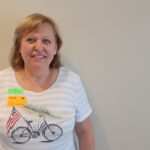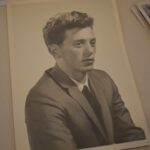Description
Les and his family had many narrow escapes from the Nazis during the war and they eventually managed to escape across the boarder to Austria from Hungary. They had to live in a camp for a few months before they were able to make their way to the U.S.Participants
-
Susan Cooper
-
Les Cooper
-
Hear Me Now Providence





